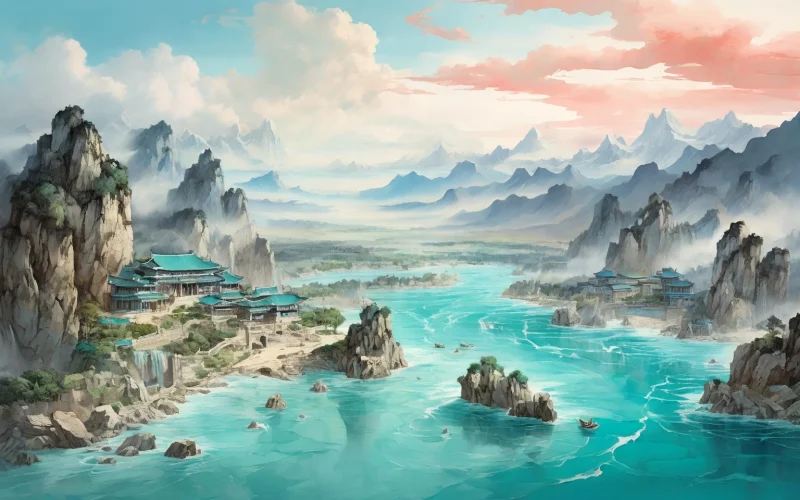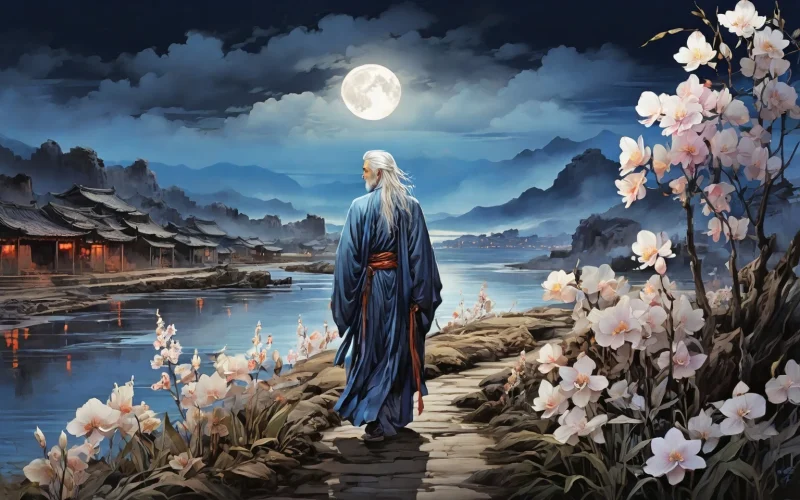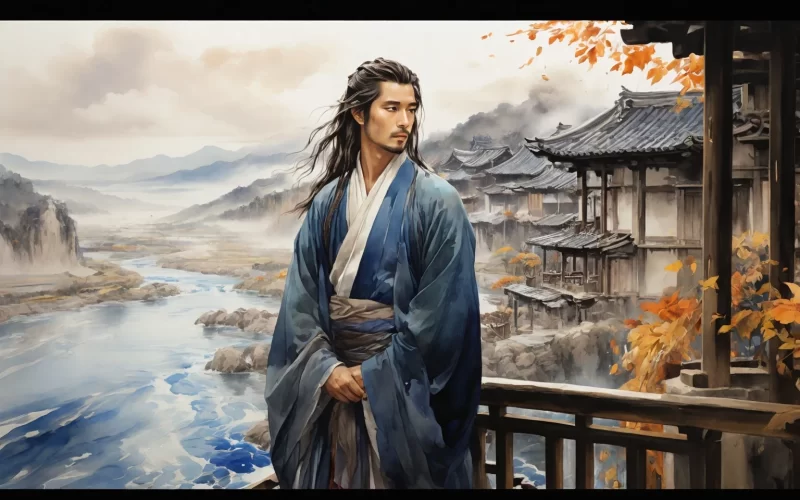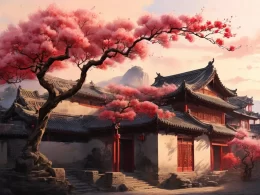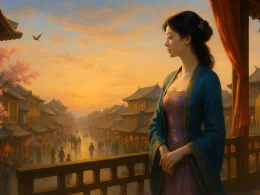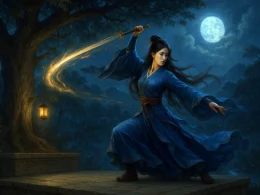The kingdom collapsed after the Song of Jade Tree;
The garrison deserted when came the enemy.
Planted with pines, a thousand tombs spread far and nigh;
Buried amid the weed, palaces stand low and high.
The swallow of stone scrapes the white cloud, rain or shine;
The night breeze blows with waves raised by the river swine.
The splendor fades when heroes are gone one and all;
Only green hills look like the ancient capital.
Original Poem
「金陵怀古」
许浑
玉树歌残王气终,景阳兵合戍楼空。
松楸远近千官冢,禾黍高低六代宫。
石燕拂云晴亦雨,江豚吹浪夜还风。
英雄一去豪华尽,惟有青山似洛中。
Interpretation
Composed around 834 AD during Xu Hun's later travels through Jiangnan, this poem contemplates the desolate remnants of Jinling (modern Nanjing)—once glorious capital of six dynasties, now faded after the Sui-Tang political transition. Through Jinling's metamorphosis from splendor to decay, the poet expresses profound lament over historical vicissitudes while voicing his own melancholy over a thwarted official career.
First Couplet: "玉树歌残王气终,景阳兵合戍楼空。"
Yù shù gē cán wáng qì zhōng, jǐng yáng bīng hé shù lóu kōng.
"Jade Tree" songs fade as royal aura dies,
Jingyang's troops assemble 'neath empty towers.
The opening couplet recalls the Chen dynasty's fall, juxtaposing the decadent "Jade Tree Backyard Flowers" melody against the Sui army's advance—capturing the pivotal moment when Southern Chen's extravagance met irreversible collapse.
Second Couplet: "松楸远近千官冢,禾黍高低六代宫。"
Sōng qiū yuǎn jìn qiān guān zhǒng, hé shǔ gāo dī liù dài gōng.
Pine-oak graves of countless officials near and far,
Millet overgrown where six dynasties' palaces are.
The ruins of tombs and palaces reclaimed by nature underscore the transience of power against time's relentless march.
Third Couplet: "石燕拂云晴亦雨,江豚吹浪夜还风。"
Shí yàn fú yún qíng yì yǔ, jiāng tún chuī làng yè hái fēng.
Stone swallows brush clouds—sunshine turns to rain,
River porpoises churn waves—night winds regain.
Nature's capricious shifts mirror historical upheavals, suggesting even heroes become mere whispers in the wind.
Fourth Couplet: "英雄一去豪华尽,惟有青山似洛中。"
Yīng xióng yī qù háo huá jìn, wéi yǒu qīng shān sì luò zhōng.
Heroes departed, all splendor ceased,
Only these green hills resemble Luoyang's east.
The eternal landscape's indifference to human glory delivers the poem's tragic essence—mountains outlast empires.
Holistic Appreciation
The dramatic opening couplet sets the historical stage with the abrupt fall of the Chen dynasty, where decadent melodies yield to invading armies. The second couplet surveys the present ruins—gravestones and weed-choked palaces—materializing the evaporation of imperial grandeur. Natural omens in the third couplet (stone swallows altering weather, porpoises stirring waves) universalize the theme of impermanence. The finale's "green hills"—unchanging witnesses to human transience—drive home the poem's central meditation: all earthly power proves fleeting against nature's impassive endurance.
Xu Hun's mastery shines in his interweaving of historical narrative, physical decay, and natural symbolism. Jinling serves not merely as setting but as metaphysical embodiment of time's inexorable passage—where every crumbled wall whispers memento mori to living ambition.
Artistic Merits
- Architectural progression: Three movements—historical recollection, present decay, natural metaphor—build layered meaning
- Fusion of tangible and ethereal: Concrete ruins paired with symbolic natural phenomena
- Lexical precision: Words like "fade," "empty," "departed" distill rise-and-fall cycles to their essence
- Potent contrasts: Ephemeral human glory versus enduring geography heightens pathos
Insights
This poetic meditation on Jinling's ruins offers timeless perspective: political power and material splendor inevitably dissolve, while nature's fundamentals endure. The poet's historical gaze and natural imagery invite modern readers to consider—what truly constitutes lasting value when even the mightiest dynasties become footnotes in geological time? The poem's quiet power lies in its double revelation: human achievements are simultaneously monumental and insignificant, a paradox that should humble yet also liberate us from vanity's grip.
About the poet
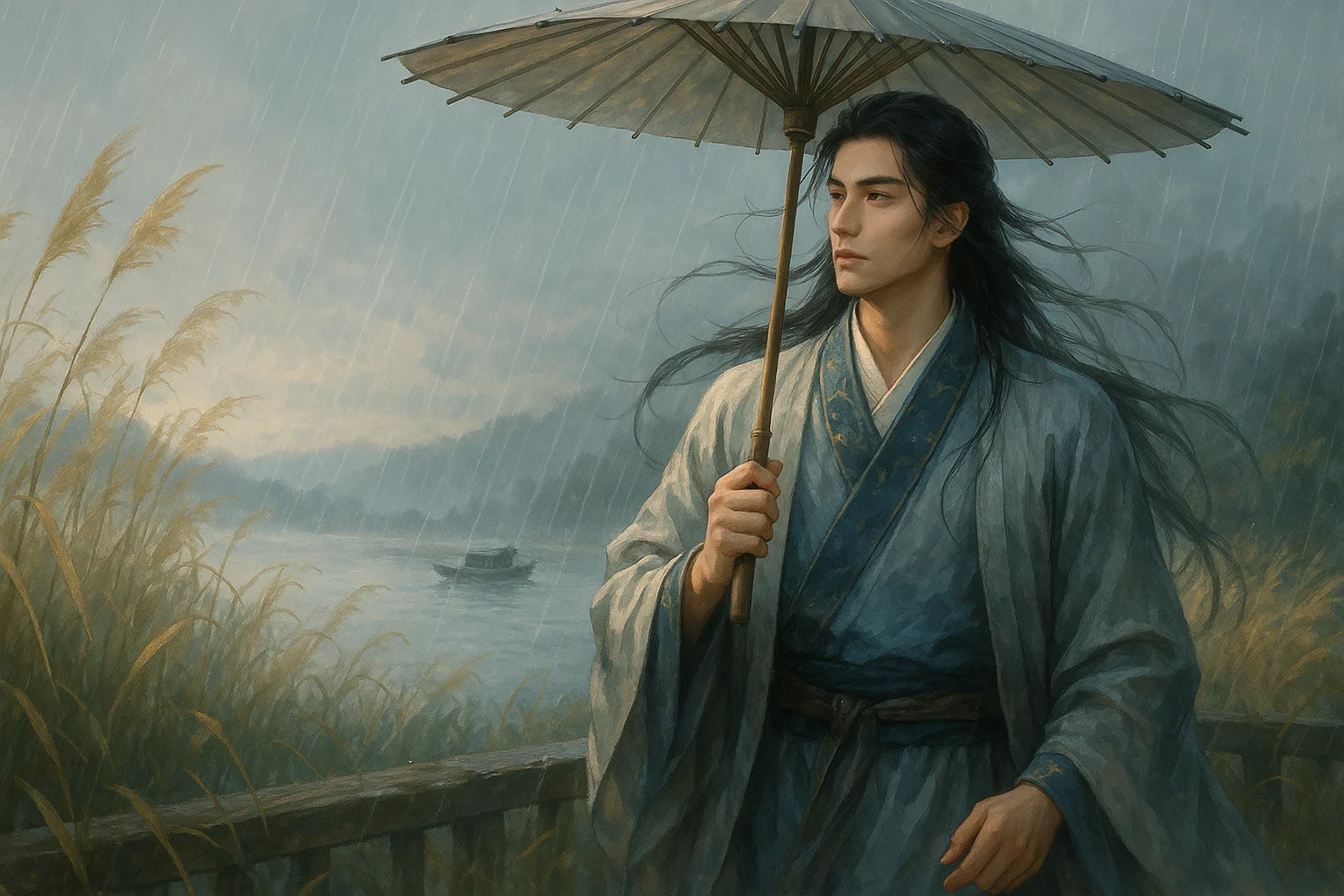
Xu Hun (许浑), c. 791 - 858 AD, was a Tang Dynasty poet, a native of Danyang, Jiangsu Province. He was one of the most influential poets of the Late Tang Dynasty. His poems are characterized by nostalgia for ancient times and idyllic poems, in which he describes the scenery of water and rain.






